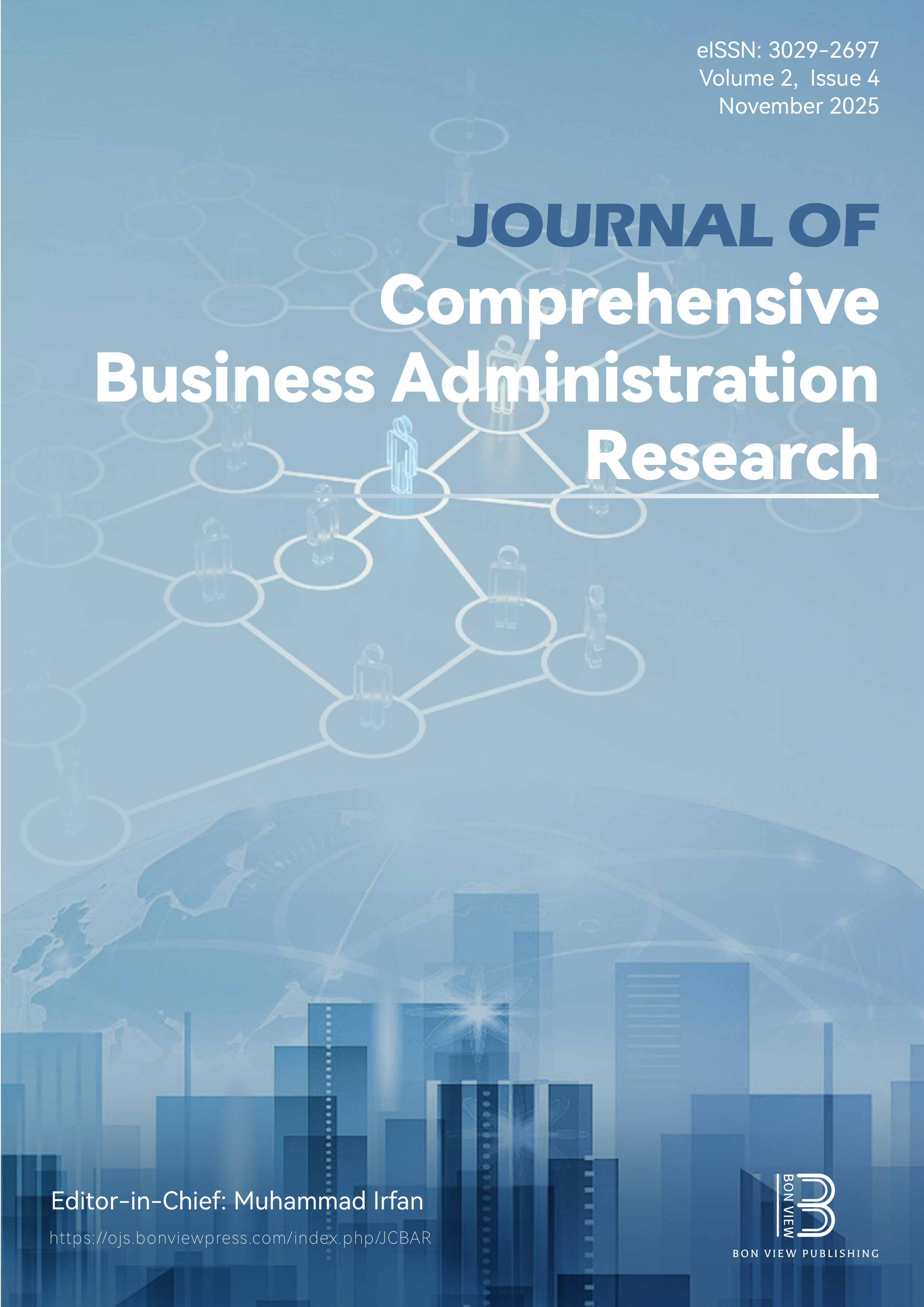The Effect of Board Characteristics on Banks’ Insolvency Risk: Empirical Evidence from an Emerging Economy
DOI:
https://doi.org/10.47852/bonviewJCBAR52024866Keywords:
bank, insolvency, risk, board, performanceAbstract
Bank failures have become a classic topic in the history of corporate finance literature. The reason is that these failures are caused by a sustained increment in insolvency risk from the global economic crisis in 2009, which came as a shock to most bank chief executives and board members, leaving them to contemplate how to reduce such risk. Most managers of banks in other countries keep asking themselves questions as to whether these problems experienced by the world’s biggest banks could happen to them, not forgetting the financial crisis in Ghana in 2019, which led to the government of Ghana to force banks to adhere to the Basell Banking Supervision Regulatory Framework (Basell accord) to address the inefficiencies in the Ghanaian financial market to make it more resilient to shocks and risks in the long term. Hence, this study looks at the effect of board characteristics on insolvency risk, which has the tendency of strengthening the financial market of Ghana against possible liquidation. Board characteristics are measured using gender diversity and board meetings, while ownership identity is measured using institutional and director ownership. Insolvency risk is measured using a Z-score. The purposive sampling technique was used in selecting the banks for the study. Data was collected from a sample of nineteen (19) out of 23 banks in Ghana from 2008 to 2020. A panel data analysis was used for the study. Using pooled ordinary least squares, fixed effect, random effect, and system generalized method of moments, the results indicated a positive significance of board meetings and a negative significance of gender diversity in banks’ insolvency. The study recognizes the importance of gender diversity on the board and institutional and director ownership, which enhances efficiency and shareholder wealth maximization.
Received: 21 November 2024 | Revised:12 February 2025 | Accepted: 20 June 2025
Conflicts of Interest
The authors declare that they have no conflicts of interest to this work.
Data Availability Statement
Data are available from the corresponding author upon reasonable request.
Author Contribution Statement
Bernice Obesebea Tipong-Annor: Conceptualization, Resources, Project administration. Stephen Owusu Afriyie: Methodology, Investigation, Supervision. Michael Nana Owusu-Akomeah: Formal analysis, Writing – review & editing, Visualization. Joseph Asare: Software, Data curation. Emmanuel Attah Kumah Amponsah: Validation, Writing – original draft.
Downloads
Published
Issue
Section
License
Copyright (c) 2025 Authors

This work is licensed under a Creative Commons Attribution 4.0 International License.


